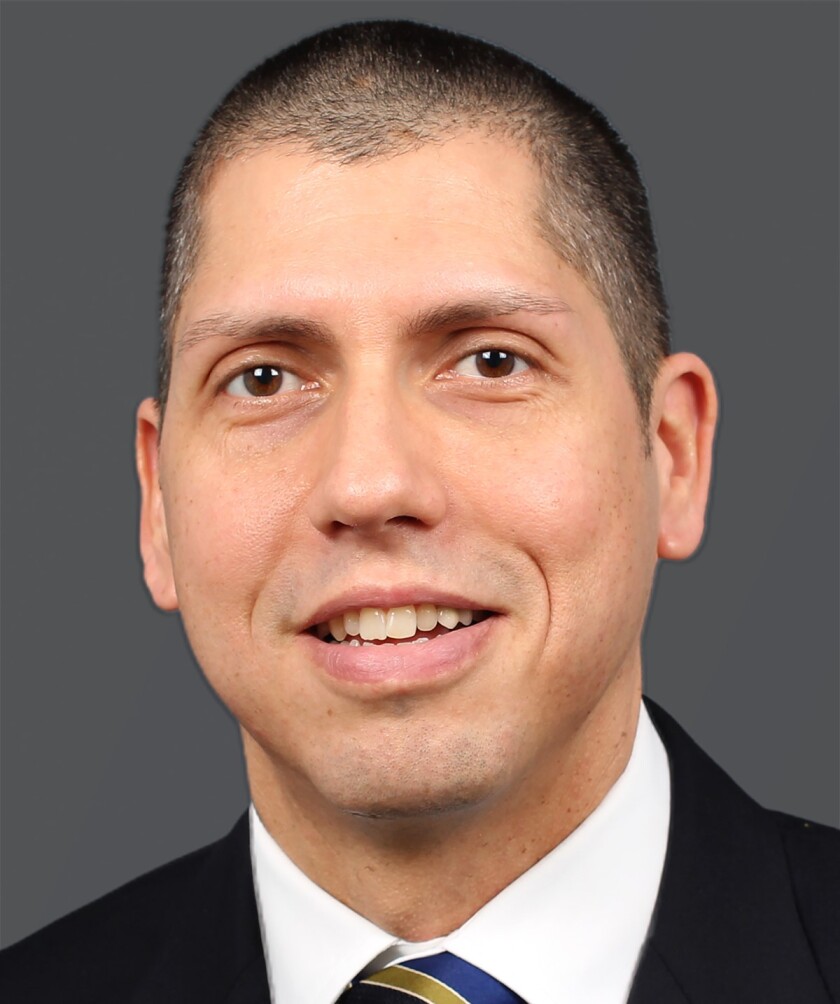Welcome to the latest instalment of Managing IP’s ‘Five minutes with’ series, where we learn more about IP lawyers on a personal as well as a professional level. This time we have Manuel Velez, partner at Mayer Brown in New York.
Someone asks you at a party what you do for a living. What do you say?
I help innovative life sciences companies to protect their inventions.
Talk us through a typical working day.
Typically, I begin my day by reading an online legal news service to check whether there are any new court decisions and legislation that could affect my clients (now or in the future). The rest of my day will be dictated by the types of matters that I am working on and where they are in their life cycle. Generally, my practice consists of representing pharmaceutical and biotech companies in patent litigation and due diligence matters. If I am working on litigation, my day will consist mostly of performing case management tasks, including developing strategies, reviewing draft pleadings/motion papers, and participating in client calls and internal team meetings. If am working on a due diligence project, my day will include performing loss of exclusivity, patent validity, and freedom to operate analyses.
Additionally, my day will usually involve some non-billable work, including business development (drafting materials for a pitch, preparing webinars, writing articles) and administrative tasks related to my roles as a co-chair of the firm’s committee on diversity and inclusion and a member of the hiring and pro-bono committees in the New York office.
What are you working on at the moment?
Right now, I am working on a couple of due diligence matters. In one matter, I am advising a client on the potential purchase of a small molecule currently marketed for the treatment of an autoimmune disorder. In the other, I am advising a client on the potential purchase of an antibody under development for the treatment of multiple cancers.
I am also assisting a transgender Ecuadorian national in obtaining political asylum on the basis of her gender identity.
Does one big piece of work usually take priority or are you juggling multiple things?
I am usually juggling multiple things. While it can be challenging, I like it when I am working on multiple projects at the same time. I find that the variety of the work keeps me stimulated and interested.
What is the most exciting aspect of your role and what is the most stressful?
The most exciting aspect of my job is digging into what makes an invention innovative. In litigation, I will often work with inventors to understand the problems that they were trying to solve, the obstacles that they overcame, and how their inventions advanced prior solutions. It is stimulating to hear an inventor describe the “eureka” moment when s/he made a discovery that revolutionised the way a disease is treated. I feel the same excitement in due diligence matters when I am reviewing how scientists are developing new ways to treat diseases in the next five to ten years.
The most stressful aspect of my job is time management. Even with careful planning, there are times when it feels that there aren’t enough hours in the day to accomplish everything that needs to get done.
Tell us the key characteristics that make a successful IP lawyer.
In my field, a successful IP lawyer is always studying how changes in technology and the law can affect how we protect inventions. This is especially true right now with the rise of artificial intelligence (AI) and the passing of the Inflation Reduction Act (IRA). While a lot of press has focused on tools like ChatGPT, less attention has been paid to the use of AI in drug discovery. Right now, there are companies using AI to design new molecules and predict the efficacy of potential drug candidates. These developments raise important questions about how to protect inventions created with the assistance of AI. Similarly, the price negotiation provision in the IRA has the potential to change the incentives for innovation and the strategies for managing a product portfolio. In order to advise life sciences clients, IP attorneys have to keep up with these developments and future ones.
What is the most common misconception about IP?
One of the most common misconceptions about IP is that companies automatically own all the IP created by their employees and contractors. Unless the employment agreements and vendor contracts explicitly provide that the employer owns the IP, companies may find that they have limited or no rights to the IP.
What or who inspires you?
I am inspired by successful individuals who give back and find ways of lifting others.
If you weren't an IP lawyer, what would you be doing?
If I wasn’t an IP lawyer, I would probably be a writer. I have always enjoyed writing. In college, I took several creative writing classes and enjoyed them. In graduate school, which I attended before going to law school, I loved writing research papers and articles. Now, as a lawyer, one of my favourite tasks is brief writing. There is something about reading a lot of information, finding patterns, and crafting an argument to advance a point or position that appeals to me.
Any advice you would give your younger self?
Trust your instincts. The loudest voices are often loud not because they have the better argument but because they don’t. Don’t second guess yourself and go for it.










